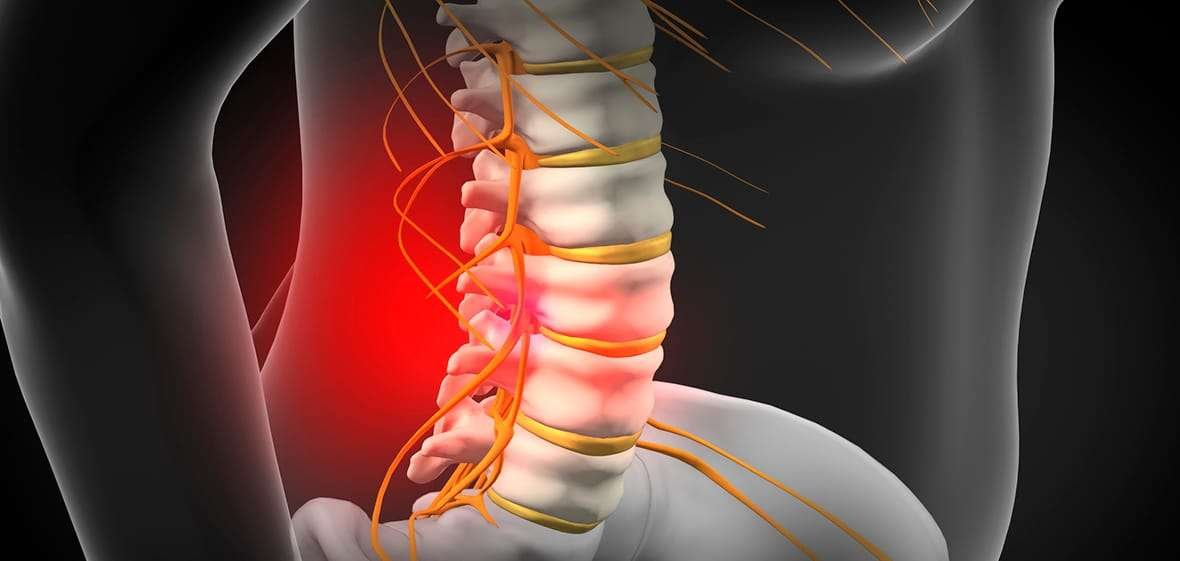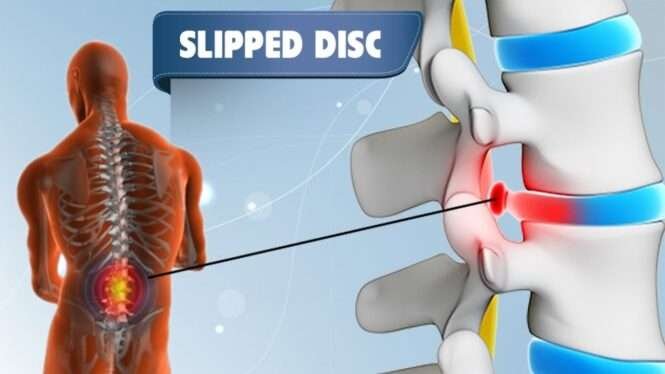
A slip disk can cause serious pain and reduced mobility. Early detection matters. Below are the 10 signs of Slip Disk you should not ignore. Read them carefully. If you notice one or more, get checked by a doctor or Ayurvedic expert.
What is a Slip Disk?
A slip disk (also called a herniated disc or slipped disc) happens when the soft inner part of a spinal disc pushes through its outer layer. This can press on nearby nerves. As a result, you may feel pain, numbness, or weakness. Early action often prevents lasting damage.
1. Persistent lower back pain — a common sign of Slip Disk
Long-lasting lower back pain that does not go away with rest is a classic sign. The pain may be sharp or burning. It often worsens when sitting or bending forward.
2. Pain that radiates down the leg (sciatica) — a clear sign of Slip Disk
When a disc presses a nerve root, pain can travel down the buttock and the back of the leg. This is called sciatica. For many people, sciatica is the most troubling symptom.
3. Numbness or tingling in the leg or foot — important signs of Slip Disk
You may feel pins-and-needles or a loss of sensation. These sensations often follow the path of the irritated nerve. If numbness worsens, seek medical help quickly.
4. Muscle weakness in the affected limb — signs of Slip Disk to watch
Weakness when lifting the foot or bending the knee can occur. This happens because the nerve no longer sends full signals to the muscle. Weakness increases the risk of falls.
5. Pain that worsens with coughing, sneezing or straining — a notable sign of Slip Disk
Straining raises spinal pressure. As a result, pain from a slipped disc can flare with coughing or sneezing. If this happens, do not ignore it.
6. Reduced flexibility and difficulty bending — more signs of Slip Disk
Stiffness and limited bending are common. You might struggle to tie shoes or bend forward. Over time, this loss of mobility can affect daily tasks.
7. One-sided symptoms — a typical sign of Slip Disk
Slip discs often affect one side of the body. You may feel pain, numbness, or weakness mainly on the left or right. Asymmetry is an important clue for doctors.
8. Pain after lifting or sudden movement — warning signs of Slip Disk
Many people report sudden pain following heavy lifting or an awkward twist. If back pain started after an injury, consider a slipped disc as a possible cause.
9. Changes in bladder or bowel function — urgent signs of Slip Disk
If you experience new bladder or bowel problems, this is an emergency. It may indicate severe nerve compression (cauda equina). Seek immediate medical attention.
10. Persistent leg or foot pain that interferes with sleep — serious signs of Slip Disk
Pain that prevents restful sleep is a red flag. Ongoing night pain affects recovery and quality of life. Address it early with professional care.

What to do if you notice these signs of Slip Disk
First, avoid heavy lifting and awkward twisting. Second, use short rest periods and gentle walking. Third, try cold packs for acute pain and heat after 48–72 hours to relax muscles. However, these are short-term steps only.
For diagnosis, clinicians use a physical exam and imaging such as MRI. Treatment may include physiotherapy, targeted exercises, medications, epidural injections, or surgery in severe cases. Ayurveda offers supportive care too — medicated oil massage (Abhyanga), Basti (herbal enemas), and herbal formulations can help reduce inflammation and improve recovery when guided by a trained practitioner.
Get expert consultation (Vedic Upchar)
If you recognize any of the signs of Slip Disk, don’t delay. Early diagnosis prevents complications. For a personalized Ayurvedic and integrative care plan, consult Vedic Upchar’s specialists. They combine traditional therapies with modern advice to help you recover safely.
👉 Book a consultation: https://vedicupchar.com/doctor-consultation/